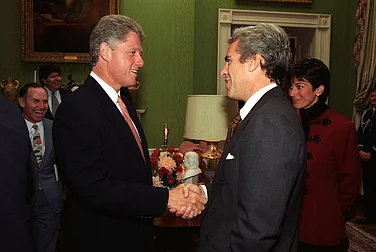American Airlines CEO Robert Isom announced the dismissal of Vasu Raja, Chief Commercial Officer, effective June, as the airline seeks to reverse course on several key strategic decisions. Raja, who joined the company in 2004 and became the senior vice president of strategy in October 2019, was known for advocating bold initiatives, including a Boston hub, a Northeast operating agreement with JetBlue, a Seattle hub partnership with Alaska, and a Seattle-Bangalore flight.
However, these plans were swiftly disrupted by the pandemic, and later, a judge's ruling undermined the JetBlue alliance. During the pandemic, Raja devised American's strategy, increasing flights to Sunbelt destinations and leveraging the airline's Charlotte and Dallas hubs to attract beach-bound travelers.
One of Raja's more controversial strategies involved pushing corporate customers to book directly through American Airlines' site rather than through travel agencies, dismantling the traditional corporate sales division in favor of a new distribution capability (NDC). Unfortunately, this strategy failed and became the reason for Raja's dismissal.
On Tuesday, American Airlines confirmed Raja's exit, and at an investor conference on Wednesday, CEO Robert Isom announced a swift return to the previous corporate strategy. Raja is a part of American Airlines since 2004.
"Others are benefitting from what we’ve done over the last six months. We’ll get that back. I know for a fact we can recapture what we’ve ceded to others," Isom said, acknowledging the competitive disadvantage American faced. The airline has already scrapped plans to restrict mileage points for some travel agency tickets. "Our approach has driven customers away from American. We’re unequivocally committed to getting those customers back," Isom added.
Praising Raja, Isom said, "I’ve known Vasu for a long time. I admire his creative thinking, his passion. He’s an innovator, a disruptor, he's a good friend. But sometimes we need a reset."
He emphasized the need for immediate results while maintaining an innovative approach. "We will absolutely innovate. We will swing for the fences. It’s essential in this business," he said, highlighting the balance between short-term performance and long-term strategy.
CEO Isom, who recently reported earning $31.4 million in 2023 and known for his focus on schedule reliability, now plans to devote more attention to daily revenue production. "I’ve been around this business a long time. You’re going to see me devoting a lot of attention to how we produce revenue day in and day out," he said.
He took responsibility for the failed corporate customer strategy, acknowledging its shortcomings, "They were my strategies. I believe they are absolutely the right ones. However, it’s very clear that we have driven some customers away. We have restricted customers from using our product. Those are the kinds of things we have to be attentive to."
Wall Street reacted negatively to American's announcement of reduced revenue and profit forecasts for the second quarter, traditionally the airline's strongest. By midday Tuesday, American shares had dropped about 14% to $11.53.
This marks the second time Isom has been involved in an executive reshuffle at American. In 2016, he replaced Scott Kirby, who subsequently became CEO of United Airlines.
Dennis Tajer, spokesperson for the Allied Pilots Association, emphasized the need for a broader strategic review. "American’s trailing results are more than just a failed strategy to sell corporate tickets," Tajer said. "United and Delta have better long-haul international strategies. Vasu wanted a domestic and short-haul international airline and said our partners can take you long-haul. That’s not working. Now Robert Isom has taken full responsibility. He has come into the cockpit and said ‘This is my airplane.’"















.png?auto=format%2Ccompress&fit=max&format=webp&w=376&dpr=2.0)













